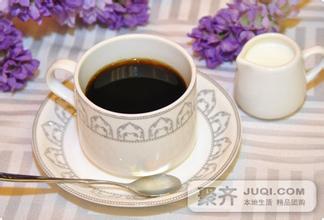A brief introduction to the Flavor description region of Ugandan Coffee Bean varieties by Grinding scale treatment

Ugandan coffee beans have a unique flavor of delicate taste, which is very suitable for making Italian and other flavors of coffee. More importantly, Ugandan coffee beans are strictly screened according to the standards of the international market to ensure their high quality and pollution-free characteristics.
Africa is the hometown of the two major varieties of coffee, Arabica and Robusta, while Uganda, which is located in eastern Africa, which is known as "plateau water hometown" and "Pearl of East Africa", is believed by many to be the birthplace of Robusta.
Uganda is one of the few countries in the world that can grow both Arabica and Robusta, with an environment and climate suitable for coffee growth. Uganda is located between 9-2000 meters above sea level, with an annual temperature of 15 ℃-28 ℃.
Ugandan coffee beans have a unique flavor of delicate taste, which is very suitable for making Italian and other flavors of coffee. More importantly, Ugandan coffee beans are strictly screened according to the standards of the international market to ensure their high quality and pollution-free characteristics.
People drink relatively fresh coffee beans. But people who are used to drinking Chen beans are not used to the fresh taste, so they desperately pursue old Java coffee, so that the Indonesian government and some businessmen deliberately store fresh beans in warehouses for one or two years and then sell them to consumers. In fact, compared with fresh beans, the acidity of aged Java beans is close to zero, but the flavor is more intense. Because of the long storage time, the increase in cost and the limited quantity, Java has always been a hot item in the coffee market. In the 1880s, 0 merchants deliberately tampered with some fresh Guatemalan or Venezuelan beans to imitate aged Java for high prices. It is intolerable that 0 merchants dye coffee beans to make them look more like old Java, but there is no doubt that the dyed chemicals are certainly toxic.
Important Notice :
前街咖啡 FrontStreet Coffee has moved to new addredd:
FrontStreet Coffee Address: 315,Donghua East Road,GuangZhou
Tel:020 38364473
- Prev

St. Cristobal Island in the Galapagos Islands breeds the best quality coffee in the world-
The best Ecuadorian coffee is grown on St. Cristobal Island in the Galapagos Islands, which has the unique natural geographical conditions for giving birth to the best quality coffee in the world. A cup of Galapagos coffee, like the beautiful scenery of the Galapagos Islands, is sure to impress you. In the mid-15th century, fishermen fishing in the western Pacific Ocean of South America were in the middle stream.
- Next

Uganda Coffee Bean Flavor Taste Characteristics Grinding Scale Treatment Manor Quality Profile
In order to improve coffee quality and reduce costs, Uganda abolished the exclusive rights of the Coffee Marketing Board (CMB) in November 1990. Most of the work previously undertaken by the Coffee Marketing Committee has now been transferred to cooperative organizations. Privatized coffee
Related
- Detailed explanation of Jadeite planting Land in Panamanian Jadeite Manor introduction to the grading system of Jadeite competitive bidding, Red bid, Green bid and Rose Summer
- Story of Coffee planting in Brenka region of Costa Rica Stonehenge Manor anaerobic heavy honey treatment of flavor mouth
- What's on the barrel of Blue Mountain Coffee beans?
- Can American coffee also pull flowers? How to use hot American style to pull out a good-looking pattern?
- Can you make a cold extract with coffee beans? What is the right proportion for cold-extracted coffee formula?
- Indonesian PWN Gold Mandrine Coffee Origin Features Flavor How to Chong? Mandolin coffee is American.
- A brief introduction to the flavor characteristics of Brazilian yellow bourbon coffee beans
- What is the effect of different water quality on the flavor of cold-extracted coffee? What kind of water is best for brewing coffee?
- Why do you think of Rose Summer whenever you mention Panamanian coffee?
- Introduction to the characteristics of authentic blue mountain coffee bean producing areas? What is the CIB Coffee Authority in Jamaica?

